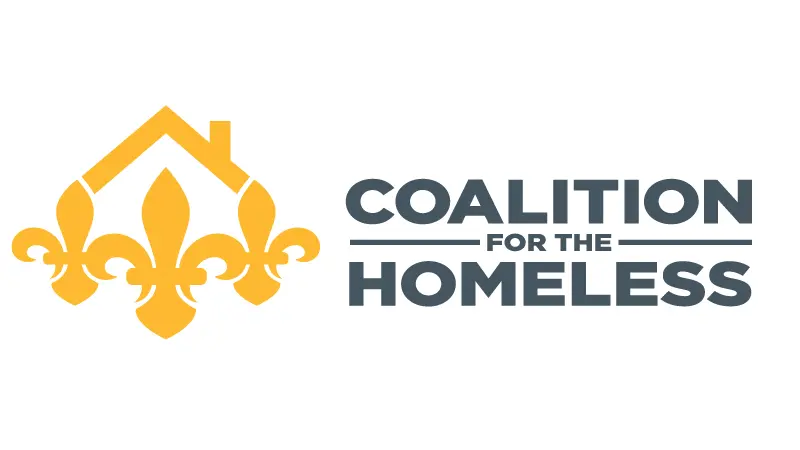Featured trainers:

Ryan Villagran, LSW
Founding trainer

Khalil Martin, LCSW
Founding trainer
Read more about Khalil & Ryan.
Just like in a game of tic-tac-toe, every move in trauma-informed care (TIC) matters. But in this training, the focus is less on winning and more on understanding how seemingly small actions, words, and patterns create meaningful connections. We’ll explore how to “play” carefully, knowing that the right moves can foster trust and healing, while hasty choices might stir up unexpected challenges. Let’s dive into the thoughtful art of trauma-informed care — because it’s all about intentional moves, not quick fixes! Moving beyond awareness and ensuring our interactions are leading with this information in the forefront of our minds involves adopting a trauma-informed approach that transforms our practices, policies, and procedures to better support those affected by trauma. Training participants will review trauma basics, as well as learn to approach client care with a deeper understanding of the complex impact trauma can have on behavior, emotions, and overall well-being. This session will also provide opportunities for self-reflection, allowing helping professionals to assess their own practices and make necessary adjustments to support the needs of those they serve.
Date & Time
Part 1-02/05/2025, 12:00pm-1:30pm
Part 2-02/12/2025, 12:00pm-1:30pm
Part 3-02/26/2025, 12:00pm-1:30pm
Online - Zoom
The Coalition for the Homeless
Laura Albovias
502-389-9550
lalbovias@louhomeless.org
Event details
Date & Time
Part 1-02/05/2025, 12:00pm-1:30pm
Part 2-02/12/2025, 12:00pm-1:30pm
Part 3-02/26/2025, 12:00pm-1:30pm
Location
Online - Zoom
Organizer
The Coalition for the Homeless
Laura Albovias
502-389-9550
lalbovias@louhomeless.org
TIC-Talk: Untangling Trauma, One Step at a Time

Just like in a game of tic-tac-toe, every move in trauma-informed care (TIC) matters. But in this training, the focus is less on winning and more on understanding how seemingly small actions, words, and patterns create meaningful connections. We’ll explore how to “play” carefully, knowing that the right moves can foster trust and healing, while hasty choices might stir up unexpected challenges. Let’s dive into the thoughtful art of trauma-informed care — because it’s all about intentional moves, not quick fixes! Moving beyond awareness and ensuring our interactions are leading with this information in the forefront of our minds involves adopting a trauma-informed approach that transforms our practices, policies, and procedures to better support those affected by trauma. Training participants will review trauma basics, as well as learn to approach client care with a deeper understanding of the complex impact trauma can have on behavior, emotions, and overall well-being. This session will also provide opportunities for self-reflection, allowing helping professionals to assess their own practices and make necessary adjustments to support the needs of those they serve.
Reach out to talk about other trainings.
Tools for Change Talk- Motivational Interviewing

Date & Time
Part 1-03/05/2025, 12:00pm-1:30pm
Part 2-03/12/2025, 12:00pm-1:30pm
Part 3-03/26/2025, 12:00pm-1:30pm
Online - Zoom
The Coalition for the Homeless
Laura Albovias
502-389-9550
lalbovias@louhomeless.org
Event details
Date & Time
Part 1-03/05/2025, 12:00pm-1:30pm
Part 2-03/12/2025, 12:00pm-1:30pm
Part 3-03/26/2025, 12:00pm-1:30pm
Location
Online - Zoom
Organizer
The Coalition for the Homeless
Laura Albovias
502-389-9550
lalbovias@louhomeless.org
Tools for Change Talk (Motivational Interviewing)

Motivational Interviewing is a semi-directive, client-centered counseling style that has been used in a variety of settings over many years. As an evidence-based practice, Motivational Interviewing is also a key part of Housing First approaches. While the basic practice of Motivational Interviewing can be understood quickly, the skills and techniques can take years to master. This deeper dive into the skills and strategies of Motivational Interviewing will ask participants to practice task-specific skills using familiar client scenarios.
Learn more about Heartset Training Center.
Building Trust through Compassion: Harm Reduction & the Therapeutic Alliance

Displaying compassion, empathy, mutual respect, and trust are essential in maintaining our healthiest relationships. Evidence shows that these same ingredients can play a key role in improving health and treatment outcomes when applied in work with historically marginalized communities. Through exploration of real-wold examples, and the complex needs of people in need of harm reduction services, participants will learn to navigate difficult discussions, and client interactions by capitalizing on the relationship between service providers and their clients. The aim of this training is to equip helping professionals with the necessary tools to strengthen client bonds, ultimate leading to more effective and compassionate care.
Date & Time
Part 1-04/02/2025, 12:00pm-1:30pm
Part 2-04/09/2025, 12:00pm-1:30pm
Part 3-04/23/2025, 12:00pm-1:30pm
Online - Zoom
The Coalition for the Homeless
Laura Albovias
502-389-9550
lalbovias@louhomeless.org
Event details
Date & Time
Part 1-04/02/2025, 12:00pm-1:30pm
Part 2-04/09/2025, 12:00pm-1:30pm
Part 3-04/23/2025, 12:00pm-1:30pm
Location
Online - Zoom
Organizer
The Coalition for the Homeless
Laura Albovias
502-389-9550
lalbovias@louhomeless.org
Building Trust through Compassion: Harm Reduction & the Therapeutic Alliance

Displaying compassion, empathy, mutual respect, and trust are essential in maintaining our healthiest relationships. Evidence shows that these same ingredients can play a key role in improving health and treatment outcomes when applied in work with historically marginalized communities. Through exploration of real-wold examples, and the complex needs of people in need of harm reduction services, participants will learn to navigate difficult discussions, and client interactions by capitalizing on the relationship between service providers and their clients. The aim of this training is to equip helping professionals with the necessary tools to strengthen client bonds, ultimate leading to more effective and compassionate care.
Check out other training offerings from Heartset Training Center.
Reintegrating the Self: Managing Vicarious Trauma

On a long enough timeline, workers in complex care settings will experience the challenges of burnout; vicarious trauma is an occupational hazard of supporting those most in need of housing and behavioral health supports. Just as important as understanding the signs and symptoms of trauma in clients, is the necessity to recognize our own experiences of stress, trauma, burnout, and ultimately vicarious trauma. We owe it to the people in our care to manage vicarious trauma in order to break cycles of mistrust and reduced client outcomes. This training explores a nuanced understanding of vicarious trauma and attempts to differentiate it from other experiences helpers may encounter. We will also explore its negative impacts on care delivery before examining tools for managing the inevitable.
Date & Time
Part 1-05/07/2025, 12:00pm-1:30pm
Part 2-05/14/2025, 12:00pm-1:30pm
Part 3-05/21/2025, 12:00pm-1:30pm
Online - Zoom
The Coalition for the Homeless
Laura Albovias
502-389-9550
lalbovias@louhomeless.org
Event details
Date & Time
Part 1-05/07/2025, 12:00pm-1:30pm
Part 2-05/14/2025, 12:00pm-1:30pm
Part 3-05/21/2025, 12:00pm-1:30pm
Location
Online - Zoom
Organizer
The Coalition for the Homeless
Laura Albovias
502-389-9550
lalbovias@louhomeless.org
Reintegrating the Self: Managing Vicarious Trauma

On a long enough timeline, workers in complex care settings will experience the challenges of burnout; vicarious trauma is an occupational hazard of supporting those most in need of housing and behavioral health supports. Just as important as understanding the signs and symptoms of trauma in clients, is the necessity to recognize our own experiences of stress, trauma, burnout, and ultimately vicarious trauma. We owe it to the people in our care to manage vicarious trauma in order to break cycles of mistrust and reduced client outcomes. This training explores a nuanced understanding of vicarious trauma and attempts to differentiate it from other experiences helpers may encounter. We will also explore its negative impacts on care delivery before examining tools for managing the inevitable.
Request Training
Are you seeking training that goes beyond the usual box-checking and inspires truly person-centered care? Enter your details to get a quote.



